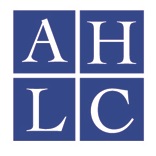AHA Attends Supreme Court Hearing on Church-State Separation Case

By Bill Burgess
The Supreme Court heard oral arguments in an important case involving the rule of law and religious organizations last week. The AHA’s Appignani Humanist Legal Center filed an amicus curiae brief in the case of on behalf of the AHA and six other allied organizations.
The case involves a teacher fired from a Christian school after her return from disability. She claims that this violated the Americans with Disabilities Act. The school claims that this does not matter because it is a religious institution and therefore exempt from employment laws under the so-called “ministerial exception.” This legal doctrine, which has been widely adopted by lower federal courts but never before considered by the Supreme Court, states that religious organizations have a constitutional right to discriminate on the basis of race, gender, age or disability in violation of employment laws if the employee at issue is deemed to be a minister. (The right of religious employers, such as churches and related institutions, to require that employees to be of the same religion as their employer, and to follow that religion’s dictates, is expressly recognized in employment anti-discrimination statutes and is not at issue in this case.)
The ministerial exception has been applied to prevent courts from even hearing any case involving employment discrimination brought against a religious organization because these groups claim that it would violate their freedom of religion for there to be an investigation of their wrongdoing.
Our brief argued that religious employers have no special Constitutional right to violate any law, including those against employment discrimination, and that granting them such a right would violate the separation of church and state guaranteed by the Establishment Clause.
The Supreme Court has in past rulings made clear that the Free Exercise Clause of the Constitution does not give religious defendants a special right to violate any law that they feel infringes in some way on their freedom of religion. In a 1990 case, the Court ruled that the free exercise rights of a member of a Native American church who lost unemployment benefits following a conviction for the use of peyote in a religious ritual were not violated because the drug law was a neutral law not targeted at repressing religious activity.
I attended the hearing at the Supreme Court last Wednesday here in Washington DC. As shown by their engaged questioning of counsel for both sides during oral arguments, the Court is grappling with the practical difficulties and Constitutional pitfalls of lawsuits relating to religious employment. Those pitfalls include the possible outcome of a successful lawsuit: reinstating a plaintiff as a minister of a church against its will. The Court could choose to avoid this problem by limiting the remedy available to monetary damages.
The Court is expected to issue a ruling in the case, Hosanna-Tabor Evangelical Lutheran Church and School v. EEOC et al, sometime in early 2012.
To stay up-to-date with the efforts of the legal center, please visit our Facebook page.
Bill Burgess is the legal coordinator of the American Humanist Association’s Appignani Humanist Legal Center.
